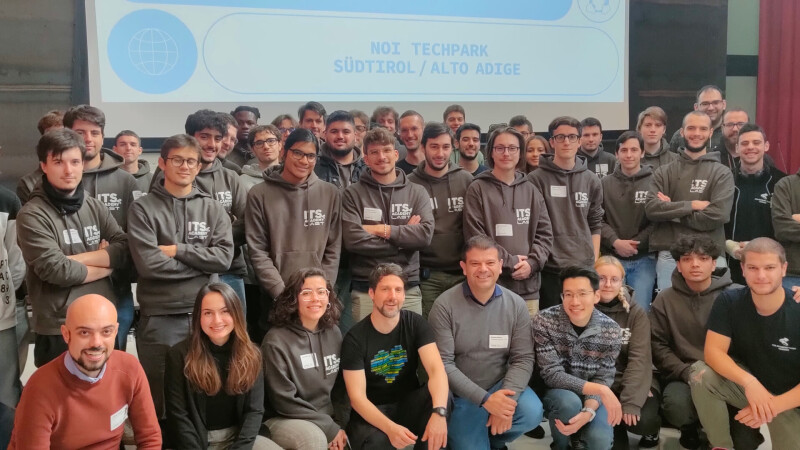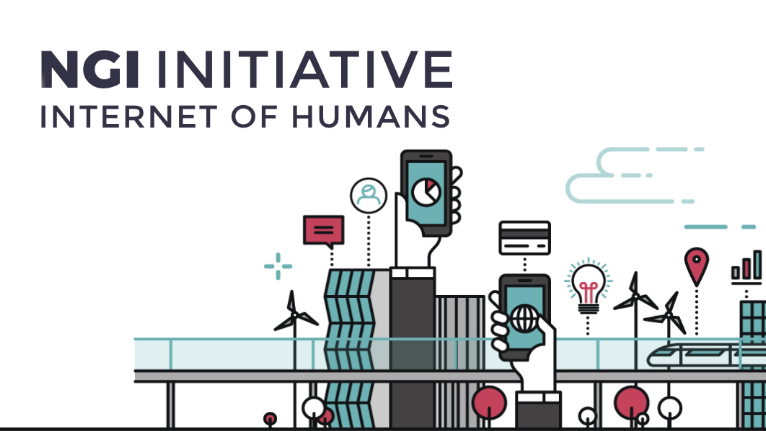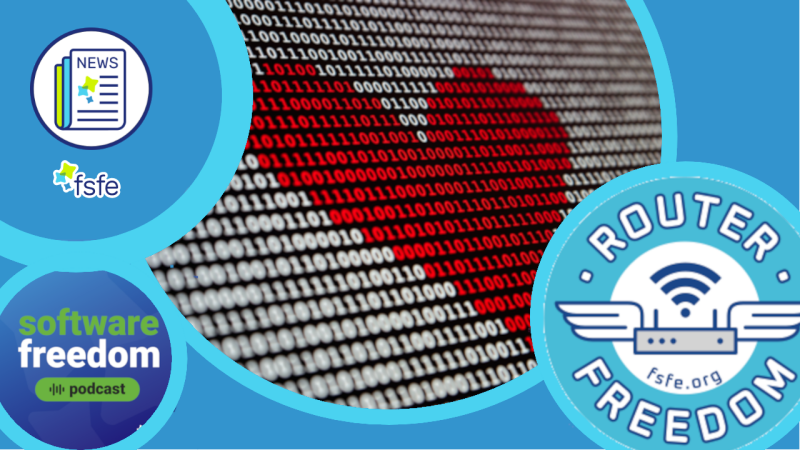See you at FOSDEM 2024!
mardi 30 janvier 2024 à 00:00See you at FOSDEM 2024!
It is that time of the year again. FOSDEM will take place in Brussels on 3 and 4 February 2024. The Free Software Foundation Europe will be there with most of its staff and some of our volunteers! Are you planning to attend? If so, come meet us at our booth!
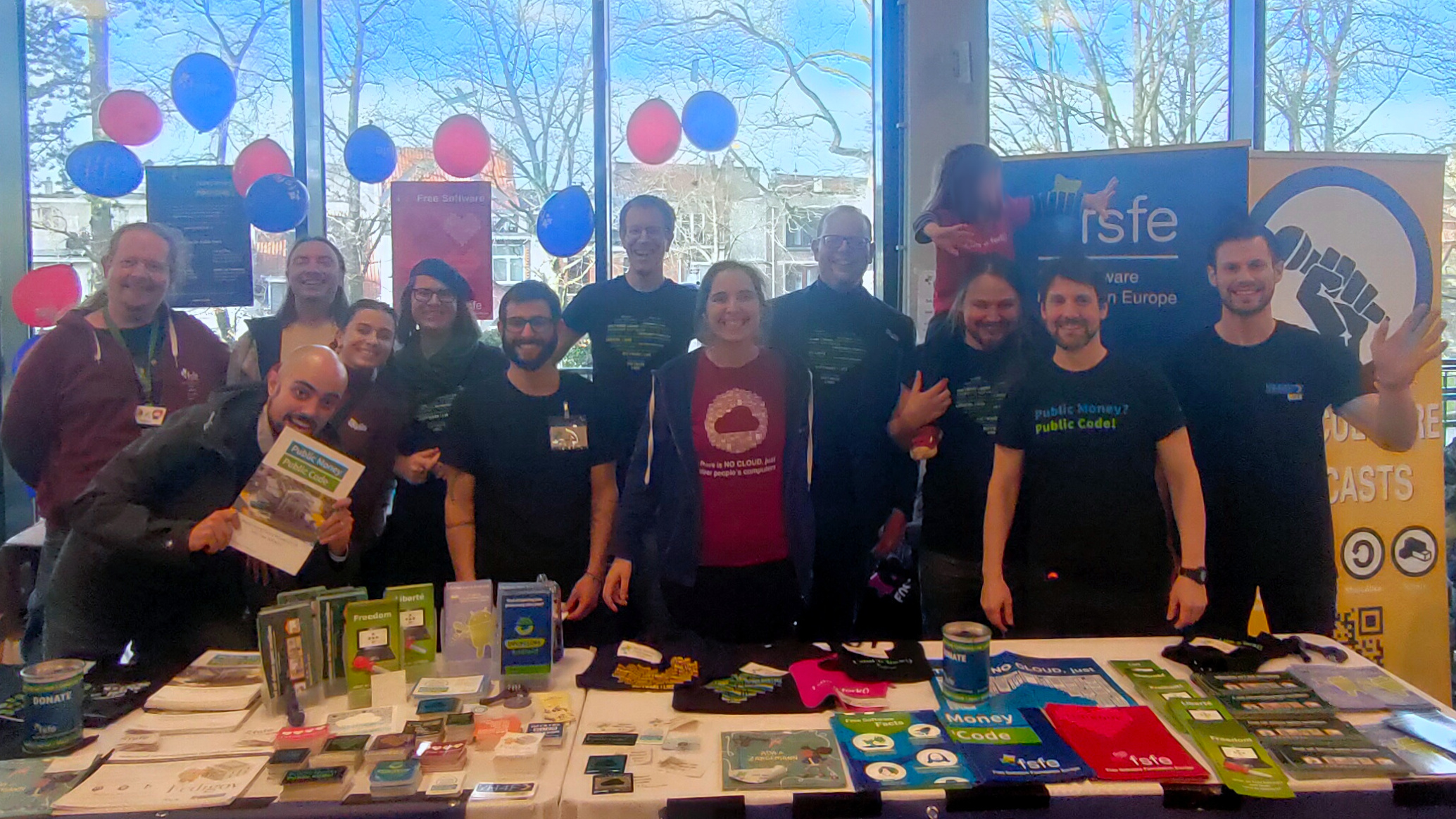
FOSDEM brings together thousands of Free Software enthusiasts in Brussels on the first weekend of February each year to discuss Free Software related topics. Once again, we are participating in this two-day event at the Free University of Brussels with our booth, the Legal and Policy Devroom that we co-organize, and other interesting talks. Our team will be there ready to meet you, engage in fruitful discussions and network with the Free Software Community. Come along to check out our socks and t-shirts, along with a bunch of freshly-printed stickers!
If you are planning to come to FOSDEM, we encourage you to join our Matrix FOSDEM 2024 room. Stay up to date and step by at our social gatherings!Indeed, if you are already in Brussels on Friday, you can join our first social gathering and catch up! Meeting point for dinner and drinks at La Mazette at 19:00h. See in Open Street Map.
Saturday, 3 February
From Saturday, as usual, you will find us around, mainly at our booth. If you are a newcomer or a Free Software expert, our team will be happy to meet you at the FSFE booth. Come to chat with us and discuss about Free Software, get informed about our activities, share with us your impressions about our new stickers, and add a new t shirt - or a pair of socks - to your wardrobe. Our booth is the best place to find our team! The FSFE Booth is in Building K level 2. Group A - Community advocacy, 5.
Moreover, Saturday is the day during which our co-organized devroom, the Legal and Policy Issues Devroom, takes place. We have been co-organizing this devroom since 2020 and since then, FOSDEM participants have showed great interest in these topics. Our Legal and Policy Issues Devroom is taking place from 15:00 in Guillissen. One more year, together with our co-organisers Karen Sandler and Bradley Kuhn from Software Freedom Conservancy, and Tom Marble from Informatique, Inc., the FSFE’s Alexander Sander and Matthias Kirschner will be addressing key legal and policy topics related to Free Software.
- 09:00h - 19:00h - FSFE Booth Building K level 2. Group A - Community advocacy, 5.
- 15:00h - 19:00h - Legal & Policy Devroom Room: UA2.220 (Guillissen)
- 15:00h – 15:05h - Welcome to the Legal and Policy Issues Devroom Room: UA2.220 (Guillissen)
- 15:05h – 16:00h - RHEL and CentOS and the growth of openwashing in FOSS Room: UA2.220 (Guillissen)
- 16:00h – 16:30h - Figuring out trademark policy on the fly Room: UA2.220 (Guillissen)
- 16:30h – 17:00h - GPL’s Termination under German Law Room: UA2.220 (Guillissen)
- 17:00h – 17:40h - Further Restrictions, Imposed Downstream on Copyleft, Wreak Havoc: Discussing A Plan of Action Room: UA2.220 (Guillissen)
- 17:40h – 18:10h - The new Swiss Open Source Law: "Public Money Public Code" by default Room: UA2.220 (Guillissen)
- 18:10h - 19:00h - Hot Topics: Organizers of the Legal & Policy DevRoom discuss the issues of the day Room: UA2.220 (Guillissen)
After a long day, what is better than a pizza? Join us to continue discussing about Free Software while we enjoy a yummy pizza. Meeting point at Otomat at 19:30h. See in Open Street Map.
Sunday, 4 February
On Sunday, our booth will be open from 9:00h until 17:00h. You will find there our team and volunteers who would love to explain you our activities. We are also coming with a lot of merchandising, but if you want to secure a t-shirt in your size, the sooner you are coming, the better!
On this day, the "Open Source in the European Legislative Landscape" devroom will take place. This devroom is run by Simon Phipps, Enzo Ribagnac, Maarten Aertsen, Axel Thévernet, Deb Bryant, Alexander Sander, and Gijs Hillenius, and the Community will discuss current policy topics with European legislators. There, Alexander Sander, FSFE's Senior Policy Consultant, will moderate the session on "FOSS Policy Engagement". After it, if you stay in that same room, you will have the chance to listen to Lina Ceballos, FSFE Policy Project Manager, who will open the session on “Public Services interoperability” and the Interoperable Europe Act, followed by a discussion between decision makers and the Community. Later that day, Lucas Lasota, FSFE Programme Manager, together with our Netherlands Coordinator Niko Rikken, will highlight the main challenges for Router Freedom and Device Neutrality in Europe.
Finally, Niharika Singhal, FSFE’s Project Manger, will present the FSFE’s work on AI and license proliferation done within the Zooom initiative. The talk will be presented in the AI and Machine Learning devroom.
- 09:00 – 17:00 - FSFE Booth Building K level 2. Group A - Community advocacy, 5.
- 12:30 – 13:10 - FOSS policy engagement: workshop Room AW1.120
- 13:35 – 14:10 - Public services interoperability: The Interoperable Europe Act; the challenges and opportunities for the free and open source communities Room AW1.120
- 15:10 – 15:20 - Digital Services Interoperability: Intertwining EU telecom law, the DMA, internet devices and Free Software Room AW1.120
- 16:00 – 16:15 - Codes Bound by Ethics: The Rising Tide of Non-Free Software Licenses in AI ecosystems Room UB2.252A (Lameere)
Of course, there will be many more interesting talks going on! You can check the schedule of the two day conference in the FOSDEM website.
Let’s close this two intense but insightful days with our last community gathering. Meeting point at 18:00 at the Cafè La Maison du Peuple. See in Open Street Map.
Give us a hand!
Although we hope we do not have a lot of merchandising left at the end of the conference, tearing down the booth is usually not an easy task so we might need extra hands on Sunday. Contact our Office Assistant Francesca fi@fsfe.org if you can join us!
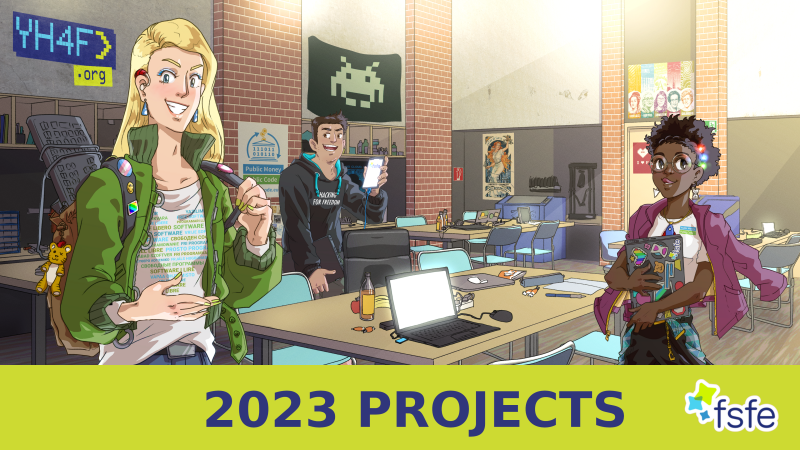
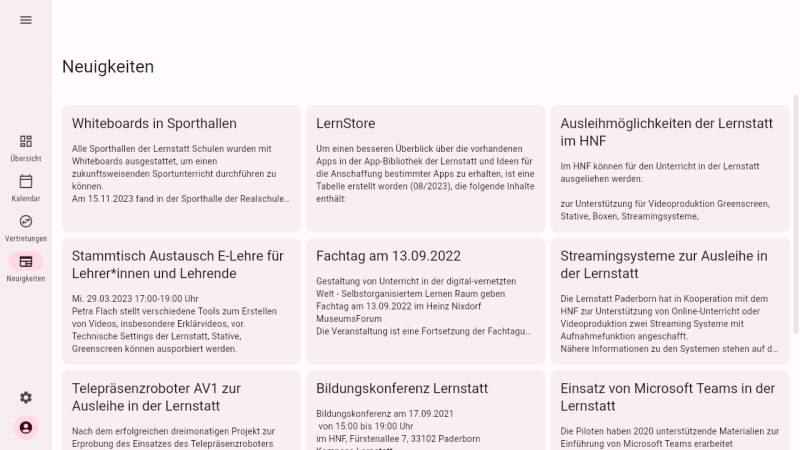 School Hub’s “news” section (Neuigkeiten)
School Hub’s “news” section (Neuigkeiten)
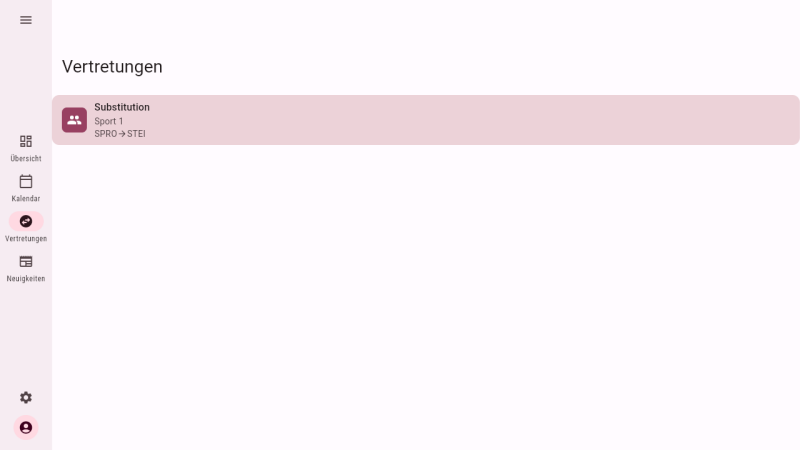 School Hub’s “substitutions” (Vertretungen) section
School Hub’s “substitutions” (Vertretungen) section
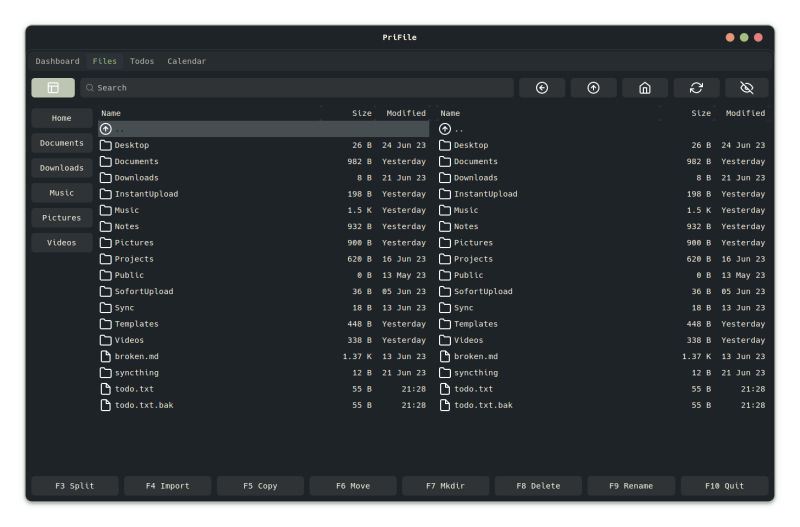 Nanoly’s main page
Nanoly’s main page
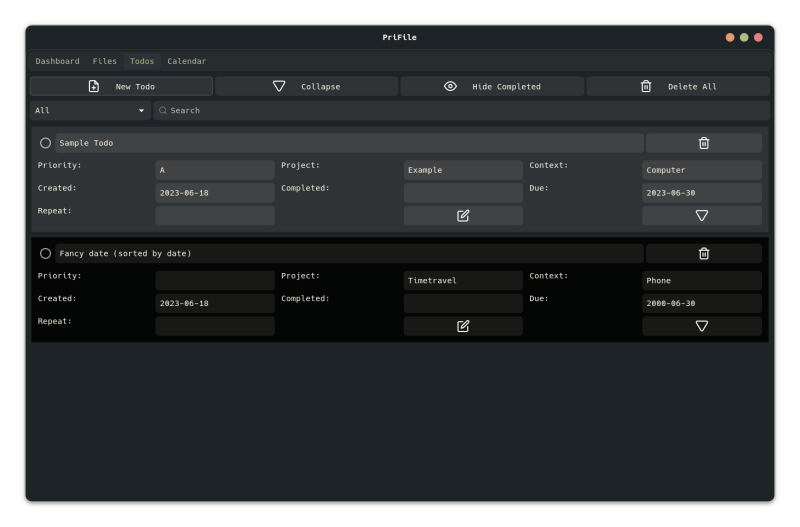 An example of the Shigoto dashboard
An example of the Shigoto dashboard
